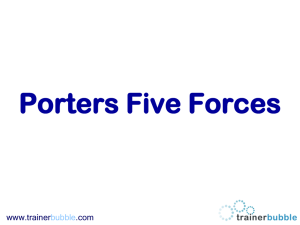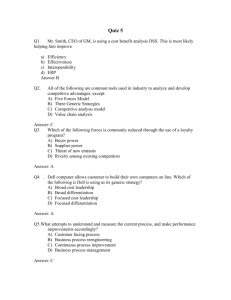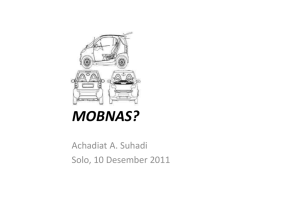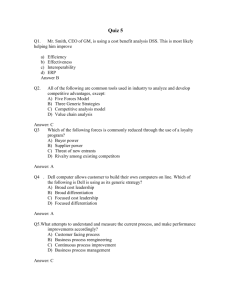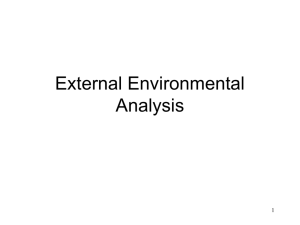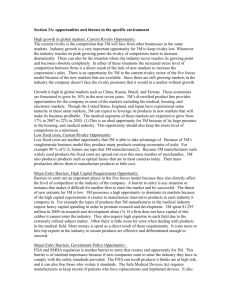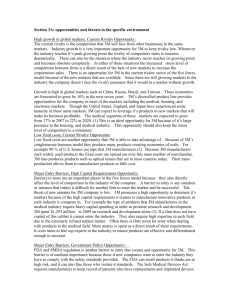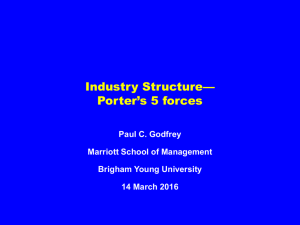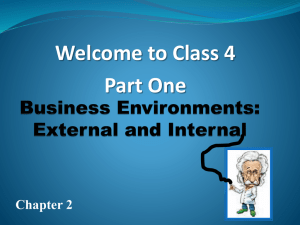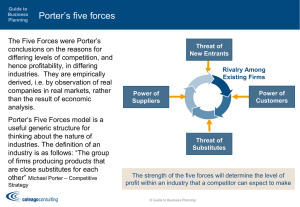Merger Effect on the Health of Industry Competition
advertisement
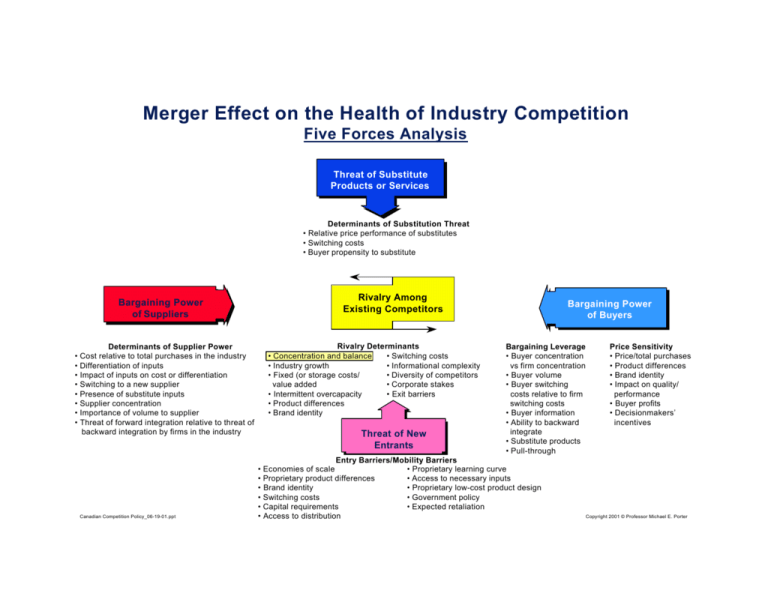
Merger Effect on the Health of Industry Competition Five Forces Analysis Threat of Substitute Products or Services Determinants of Substitution Threat • Relative price performance of substitutes • Switching costs • Buyer propensity to substitute Bargaining Power of Suppliers Determinants of Supplier Power • Cost relative to total purchases in the industry • Differentiation of inputs • Impact of inputs on cost or differentiation • Switching to a new supplier • Presence of substitute inputs • Supplier concentration • Importance of volume to supplier • Threat of forward integration relative to threat of backward integration by firms in the industry Canadian Competition Policy_06-19-01.ppt Rivalry Among Existing Competitors Rivalry Determinants • Concentration and balance • Switching costs • Industry growth • Informational complexity • Fixed (or storage costs/ • Diversity of competitors value added • Corporate stakes • Intermittent overcapacity • Exit barriers • Product differences • Brand identity Threat of New Entrants Bargaining Power of Buyers Bargaining Leverage • Buyer concentration vs firm concentration • Buyer volume • Buyer switching costs relative to firm switching costs • Buyer information • Ability to backward integrate • Substitute products • Pull-through Entry Barriers/Mobility Barriers • Economies of scale • Proprietary learning curve • Proprietary product differences • Access to necessary inputs • Brand identity • Proprietary low-cost product design • Switching costs • Government policy • Capital requirements • Expected retaliation 17 • Access to distribution Price Sensitivity • Price/total purchases • Product differences • Brand identity • Impact on quality/ performance • Buyer profits • Decisionmakers’ incentives Copyright 2001 © Professor Michael E. Porter Merger Effect on the Health of Local Competition Diamond Analysis Context Context for for Firm Firm Strategy Strategy and and Rivalry Rivalry Factor Factor (Input) (Input) Conditions Conditions • How is the merger likely to affect the quantity and quality of specialized inputs available to firms locally? – human resources – specialized capital providers – physical infrastructure – administrative infrastructure – information infrastructure – scientific and technological infrastructure Canadian Competition Policy_06-19-01.ppt • How does the merger affect the number of locally-based rivals? Demand Demand Conditions Conditions Related Related and and Supporting Supporting Industries Industries • How will the merger affect the competitiveness and innovative ability of local customers? • How will the merger affect the vitality of locally-based supplier industries? 21 Copyright 2001 © Professor Michael E. Porter Finnish Wireless Cluster Context Context for for Firm Firm Strategy Strategy and and Rivalry Rivalry l Factor Factor (Input) (Input) Conditions Conditions l l l l l l Substantial public investment in telecommunications-related R&D, focusing on wireless technology Finland an international center for WAP development (e.g., Hewlett Packard, Siemens) Significant local venture capital for mobile applications Source: “The Economic Impact of Third-Growth Wireless Technology,” U.S. Council of Economic Advisors, October 2000 Sou Canadian Competition Policy_06-19-01.ppt A history of competition in telecommunications services throughout the 20th century Early to deregulate in telecom related industries More than 100 local operators Active local rivalry in wireless communications Related Related and and Supporting Supporting Industries Industries l l Home of Nokia, the world’s most competitive handset company Approximately 3,000 Finnish firms in telecom and IT related products and services 13 Demand Demand Conditions Conditions l l l l World’s most sophisticated consumers, with 70 percent penetration of mobile phones (20 percent of households have abandoned wireline phones) First country to allocate licenses for 3rd generation wireless networks (3 competitive groups) Heavy usage of short message services Finland a test market for WAP applications Copyright 2001 © Professor Michael E. Porter
